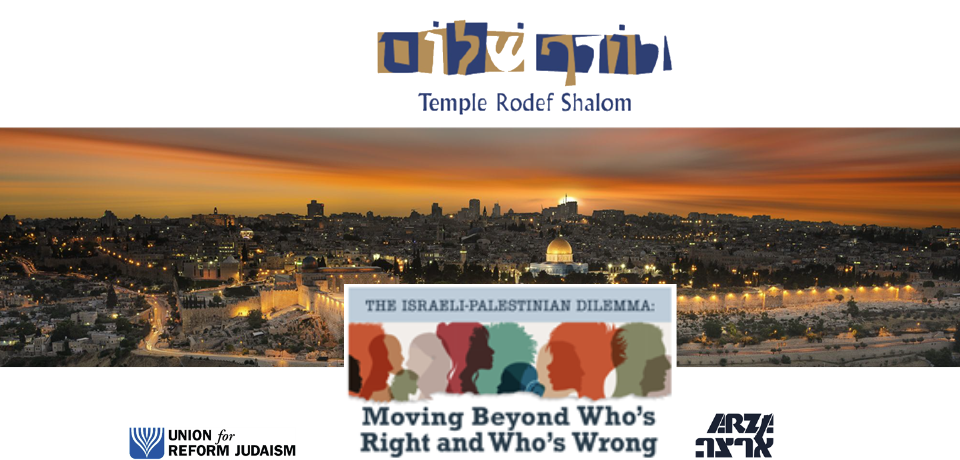Welcome to the repository of the events that took place on 3 Sundays in October 2021, the Symposium on the Israeli-Palestinian Dilemma – Moving Beyond Who’s Right and Who’s Wrong. This event was hosted at Temple Rodef Shalom, Falls Church Virginia and online at Accelevents.com.
Welcome and Opening Keynote
To kick off this symposium, Reform Jewish leaders from both the United States and Israel will discuss the conflict and what it means for American Jewry.
- Welcome: Amy Beckman, President & Gregg P. Skall, Symposium Chair, Temple Rodef Shalom
- Rabbi Amy Schwartzman, Senior Rabbi, Temple Rodef Shalom
- Rabbi Josh Weinberg, Vice President of the URJ for Israel and Reform Judaism and the Executive Director of ARZA
- MK Rabbi Gilad Kariv, First Reform Rabbi Member of the Knesset and Chair of its Constitution, Law and Justice Committee, Member of the Labor Party
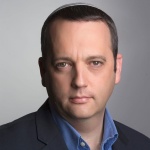
Rabbi Gilad Kariv, Executive Director of the Israel Movement for Reform and Progressive Judaism, Member of the Knesset for the Labor Party.
MK Rabbi Gilad Kariv is the first Reform Rabbi Member of the Israeli Knesset and Chair of the Knesset’s Constitution, Law and Justice Committee. A member of Israel’s Labor Party, he was elected to the Knesset in 2021. Rabbi Kariv also is the Executive Director of the Israel Movement for Reform and Progressive Judaism. Between 2003-2009, he headed the Reform Movement ‘s public and legal initiatives in Israel, including on issues of freedom of religion, women’s religious rights, conversion, and relations between religion and state. Between 2006-2009, he took part in the Knesset Constitution, Law and Justice Committee’s discussions over the proposed writing of an Israeli constitution.
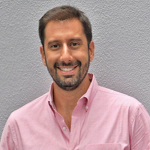
Rabbi Josh Weinberg, Union for Reform Judaism
Rabbi Josh Weinberg is the Vice President of the Union for Reform Judaism (URJ) for Israel and Reform Zionism. He also is the Executive Director of ARZA, the Association of Reform Zionists of America. He previously served as the Director of the Israel program for the Reconstructionist Rabbinical College and as a faculty member teaching Jewish history at a the URJ’s Heller (formerly NFTY-EIE) High School in Israel, which provides a semester-long, fully accredited experience in Israel for high school students from across North America. He has taught and lectured widely throughout Israel, the U.S. and Europe, and led numerous tours and trained tour educators.
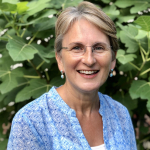
Rabbi Amy Schwartzman, Senior Rabbi,Temple Rodef Shalom
Rabbi Amy Schwartzman is the first Assistant Rabbi, the first Associate Rabbi and since 1998, the Senior Rabbi of Temple Rodef Shalom, Falls Church, VA, one of the largest U.S. congregations headed by a woman rabbi. Rabbi Schwartzman is involved in the leadership of many Jewish organizations and has served on the executive board of the Central Conference of American Rabbis (CCAR) and co-coordinated the Women’s Rabbinic Network of Reform Judaism. She also has worked with many community organizations focused on social justice, interfaith activism and serving the needs of those on the fringes of our society. Included among the long list are the Religious Coalition for Reproductive Choice, Fairfax County’s committee to End Domestic Violence, Tysons Interfaith, Dominion Psychiatric Hospitaland YACHAD.
Cultural Programming – Pursuit of Harmony
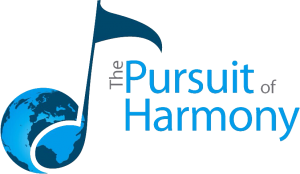
In the Spring of 2009, American songwriter Michael Hunter Ochs visited the Middle East for the first time. Michael happens to be Jewish. On his very first night in Ramallah, he met Alaa Alshaham, an award-winning peace activist and poet. Alaa happens to be a Palestinian Muslim. Although the two found harmony in their music and an increasing openness in their dialogue, they quickly realized that their historically divided people don’t know each other at all. They’ve been dedicated to changing this status quo ever since.
- Introduction: Cantor Rachel Rhodes, Temple Rodef Shalom
Video recording not available

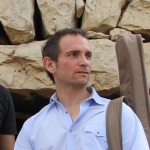
Michael Ochs, The Pursuit of Harmony
Michael Hunter Ochs has quietly established himself as one of the more versatile songwriters in America today. His song “In Her Eyes” was recorded by international superstar Josh Groban. The soul-filled “On My Knees” was awarded Song Of The Year honors from both the Gospel Music Association (Dove Award) and the Nashville Songwriters Association International, and spent 14 weeks at #1. Michael’s music is featured in numerous major motion pictures and television soundtracks including The Sisterhood of The Traveling Pants Trilogy, The Simpsons and True Blood. He frequently travels around the globe to write for various pop stars and his songs have been recorded by international entertainers such as Helene Fischer, the number-one selling artist in Germany, Austria, Denmark and Switzerland; Natalie Grant and recently named 10 Best Male Country Artist To Watch 2014, M Callahan. In addition to his success in contemporary popular music, Ochs is universally recognized as a breakthrough composer in Hebrew/Jewish worship music. On any given Friday evening his music can be heard in synagogues around the world. Since 2001 he has been Composer in Residence at Congregation Micah in Nashville, TN and is an accomplished pianist, guitarist and percussionist. Michael is often commissioned to write original compositions for various congregations throughout America, and has proven a highly popular performer and speaker on the lecture circuit. It follows that Michael has been honored with performances at some of the most respected Jewish institutions and events around the world. These include the Center for Advancement of Jewish Education (CAJE), London’s Leo Baeck Rabbinical College, the Union for Reform Juadaism’s (URJ) Biennial, and The Jewish Museum of Berlin – to participate at the 70th Commemoration of Kristallnacht. In 2008 Michael was asked to do the unimaginable – visit the West Bank and collaborate with award-winning Palestinian peace activist and poet, Alaa Alshaham. In 2014 the two founded The Pursuit Of Harmony and have toured the world together sharing the unlikely story of their inspiring friendship.
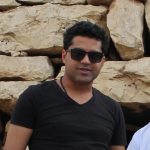
Alaa Alshaham, The Pursuit of Harmony
Alaa Alshaham is a widely successful Palestinian songwriter and commentator. Alaa’s music often reflects the concerns of the Palestinian people. Mr. Alshaham believes that: “Music is not only a universal language; it’s a language for positive change.” His video “Obama Jai” pokes fun at the Palestinian welcome to President Obama’s visit to Palestine in March of 2013. The video was a hit on YouTube and featured on Aljazeera, MBC, Palestinian and Israeli TV and many other media outlets. Mr. Alshaham was told by staff at the US Consulate to Palestine that Obama himself enjoyed the clip! In November of 2011, Mr. Alshaham established the Big Dream Initiative Children’s Choir. Currently the choir boasts over 400 members on its way to one thousand voices singing together for Palestine and for peace. In 2014, Mr. Alshaham was awarded the Children Of The Earth Prize for his work with youth in conflict zone. Most recently he has become more involved in civil society with a high level of interest in Palestinian politics and current affairs. His politicalsatirical poems and music videos are garnering hundreds of thousands of views and shares across social media. Mr. Alshaham’s warm personality and keen sense of humor shine through in everything he does, including his appearances as commentator on various television and news shows in the region. Alaa was born in Jordan and moved to Gaza in 1996 following The Oslo Agreement. He left Gaza for the West bank in 2007 – where he currently resides.
Dueling Israeli and Palestinian Historical Narratives
This panel will explore the ways in which differing Israeli and Palestinian historical narratives have animated each side in this dispute. Speakers will explore the roles that the narratives have had in shaping the self-concept of both peoples, their connection to the land, and the ways in which they conceptualize “the other.” The focus will be 1948 onward, emphasizing moments of change, lessons each side has taken from previous conflicts and attempts at reconciliation, and how they impeded or facilitated progress towards détente or peace.
- Introduction: Cantor Allen Leider, Director, Lifelong Learning, Temple Rodef Shalom
- David Makovsky, Director of the Project on Middle East Peace Process, Washington Institute for Near East Policy
- Ghaith al-Omari, Senior Fellow, Irwin Levy Family Program on the U.S.-Israel Strategic Relationship, Washington Institute for Near East Policy
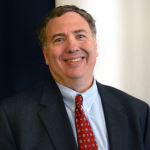
David Makovsky, Ziegler Distinguished Fellow, The Washington Institute for Near East Policy
David Makovsky is the Ziegler distinguished fellow at The Washington Institute and director of the Project on Arab-Israel Relations. He is also an adjunct professor in Middle East studies at Johns Hopkins University’s Paul H. Nitze School of Advanced International Studies (SAIS). In 2013-2014, he worked in the Office of the U.S. Secretary of State, serving as a senior advisor to the Special Envoy for Israeli-Palestinian Negotiations. Author of numerous Washington Institute monographs and essays on issues related to the Middle East Peace Process and the Arab-Israeli conflict, he is also coauthor, with Dennis Ross, of Be Strong and of Good Courage: How Israel’s Most Important Leaders Shaped Its Destiny. Mr. Makovsky is also the host of the podcast Decision Points: The U.S.-Israel Relationship, which features interviews with authors, scholars, and practitioners on key moments in the history and present of the U.S.-Israel relationship. The most recent third season focuses on Israel’s toughest policy dilemmas.
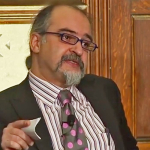
Ghaith Al-Omari, Senior Fellow, The Washington Institute for Near East Policy
Ghaith al-Omari, a senior fellow in The Washington Institute’s Irwin Levy Family Program on the U.S.-Israel Strategic Relationship, is the former executive director of the American Task Force on Palestine. Prior to that, he served in various positions within the Palestinian Authority, including Director of the International Relations Department in the Office of the Palestinian President and Prime Minister. In these capacities, he provided advice on foreign policy — especially vis-à-vis the United States and Israel — and security. He has extensive experience in the Palestinian-Israeli peace process, having been an advisor to the Palestinian negotiating team throughout the permanent status negotiations (1999–2001). In that capacity, he participated in various negotiating rounds, most notably the Camp David summit and the Taba talks. After the breakdown of the Palestinian-Israeli negotiations, he was the lead Palestinian drafter of the Geneva Initiative, an unofficial model peace agreement negotiated between leading Palestinian and Israeli public figures. Mr. al-Omari is a lawyer by training and a graduate of Georgetown and Oxford universities. Prior to his involvement in the Middle East peace process, he taught international law in Jordan and was active in human rights advocacy.
Cultural Programming – Beit Ha’Gefen Arab-Jewish Art Center
Beit Ha’Gefen is an Arab-Jewish center in Haifa founded in 1963 as a pioneer in the field of intercultural dialogue. It is a nonprofit organization that strives to establish equalitarian and shared spaces that contain the diversity of identities and cultures in Israel and worldwide. Beit Ha’Gefen is active in the fields of culture, art, education, and tourism, while maintaining a connection with the community and constantly expanding the circles of collaboration with institutions that strive to promote similar goals in Israel and worldwide. Beit Ha’Gefen was visited by TRS members as part of the Social Action Trip to Israel led by Rabbi Saxe.
- Introduction: Rabbi Jeffrey Saxe, Temple Rodef Shalom
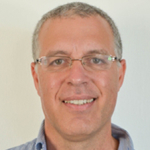
Asaf Ron, CEO, Beit Ha’Gefen
Beit Ha’Gefen is an Arab-Jewish center in Haifa founded in 1963 as a pioneer in the field of intercultural dialogue. A non-profit organization, it strives to establish egalitarian and shared spaces that contain the diversity of identities and cultures in Israel and worldwide. Beit Ha’Gefen is active in the fields of culture, art, education, and tourism while maintaining a connection with the community and constantly expanding the circles of collaborations with institutions that strive to promote similar goals in Israel and worldwide.
Also featured from Beit Ha’Gefen:
- Jeryes Ballan
- Amit Moran
- Maria Miguel de Pina
- Yael Messer
Facts on the Ground
This panel will provide an overview of the facts of day-to-day living and life in Israel and Palestine. Speakers will address comparative demographics, education, human geography, economics, governance, freedoms, opportunities, and restrictions as they affect different segments of the Jewish and Palestinian populations in Israel, East Jerusalem, the West Bank, and Gaza. You will gain insight into how these factors have shaped the conflict, affect the situation today, and stand poised to impact the future for Israelis and Palestinians overall and for discrete population communities.
- Introduction: Rabbi Jeffrey Saxe, Temple Rodef Shalom
- Lucy Kurtzer-Ellenbogen, Director, Israeli-Palestinian Conflict Program at United States Institute of Peace
- Shibley Telhami, Anwar Sadat Professor for Peace and Development at the University of Maryland and nonresident senior fellow at the Brookings Institution
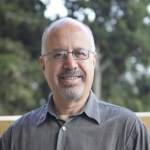
Shibley Telhami, Brookings Institution, Anwar Sadat Professor for Peace and Development, University of Maryland
Shibley Telhami is the Anwar Sadat Professor for Peace and Development and the Director of the University of Maryland Critical Issues Poll. He is also a nonresident senior fellow at the Brookings Institution. Before coming to the University of Maryland, he taught at several universities, including Cornell University, the Ohio State University, the University of Southern California, Princeton University, Columbia University, Swarthmore College, and the University of California at Berkeley, where he received his doctorate in political science. He has also been active in the foreign policy arena. He has advised in one form or another every administration from George H.W. Bush to Barack Obama. His best selling book, The Stakes: America and the Middle East, was selected by Foreign Affairs as one of the top five books on the Middle East in 2003. His most recent book, The World Through Arab Eyes: Arab Public Opinion and the Shaping of the Middle East, was published in 2013. Telhami was selected by the Carnegie Corporation of New York along with the New York Times as one of the “Great Immigrants” for 2013. He is also a recipient of the University of Maryland’s Honors College 2014 Outstanding Faculty Award and in 2018 received the University of Maryland’s Distinguished Scholar-Teacher Award.
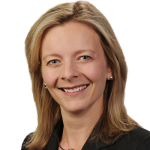
Lucy Kurtzer-Ellenbogen, Director, Israeli-Palestinian Conflict ProgramUS Institute of Peace
Lucy Kurtzer-Ellenbogen is the director of the Israeli-Palestinian conflict program at the U.S. Institute of Peace and frequently presents and publishes in a variety of national and international academic, policy and media forums on policy and civil society efforts related to the conflict. She has previously worked with U.S. Department of State as an Arabic language specialist, and as the program officer for the Kennedy School of Government’s Middle East Initiative at Harvard University, where she managed work on the Israeli, Palestinian and Saudi Arabian portfolios.
Proficient in Hebrew and Arabic, Kurtzer-Ellenbogen’s graduate research focused on political and social identity in Arabic discourse, with an emphasis on the Arabic language press of the Arab citizen community in Israel. She holds a bachelor’s degree in Arabic and French from Georgetown University, and a master’s degree from Georgetown’s Arabic department with a dual concentration in linguistics and Arab area studies.
Voices from the Ground – Hear from the People
This session is designed to begin to humanize this conflict and the impact it has on real people. Speakers will be Israelis and Palestinians spanning different demographic areas, regions and ages – a settler, an Israeli Jew, a Palestinian/Arab citizen of Israel, an East Jerusalemite, a West Bank Palestinian, and a Gazan. Speakers will represent no one but themselves.
Participants will share their personal stories, including:
- What, if anything, they learned about the “other” growing up.
- How the conflict affects their daily lives, their families, and their hopes for the future.
- What they want folks from the other side to understand about them.
Speakers will have the opportunity to answer questions from other panel members and attendees.
- Introduction: Rabbi Jeffrey Saxe, Temple Rodef Shalom
Moving Forward: Roadblocks, Opportunities, Potential Solutions
This panel will focus on the future – opportunities, challenges, and potential pathways forward. How have the Abraham Accords, the coronavirus, the changes of leadership or other events presented opportunities or challenges? To what extent can grassroots organizations or outside factors, such as America or think tanks, influence the pace or direction of change? Learn more about approaches that now appear to be possible and those that appear to have closed.
- Moderator: Rabbi Stephanie Bernstein, Rabbi, Temple Rodef Shalom
- Omar H. Rahman – Brookings Doha Center, Brookings Institution
- Dennis Ross, William Davidson Distinguished Fellow, The Washington Institute
- Natan Sachs, Director of Center for Middle East Policy – Brookings
- Dahlia Scheindlin, Political Analyst, writer, radio host
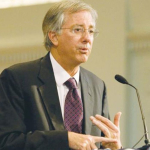
Dennis Ross, Washington Institute for Near East Policy
Ambassador Dennis Ross is Counselor and William Davidson Distinguished Fellow at The Washington Institute for Near East Policy. During the Obama Administration, he served two years as Special Assistant to President Obama and National Security Council Senior Director for the Central Region, and a year as Special Advisor to Secretary of State Hillary Rodham Clinton. A highly skilled diplomat, he was U.S. point man on the peace process in both the George H. W. Bush and Bill Clinton administrations. He was instrumental in assisting Israelis and Palestinians to reach the 1995 Interim Agreement, successfully brokered the 1997 Hebron Accord, and facilitated the 1994 Israel-Jordan peace treaty.
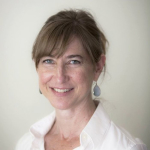
Dahlia Scheindlin, Policy Fellow, Century International
Dahlia Scheindlin is a political analyst and Policy Fellow at Century International. She is an international political consultant and public opinion analyst based in Tel Aviv, where she moved from New York City in 1997; at present she is one of the country’s leading pollsters and political analysts in Israel associated with progressive causes and peace/conflict research. She has also developed research-based strategy for political, social, and corporate campaigns in more than a dozen countries.
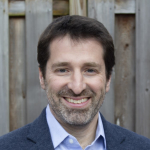
Natan Sachs, Brookings Institute
Dr. Natan Sachs is the Director of the Brookings Institution’s Center for Middle East Policy. His work focuses on Israel’s foreign policy, its domestic politics, and on U.S.-Israeli relations. He is currently writing a book on Israeli grand strategy and its domestic origins. A native of Jerusalem, Dr. Sachs has taught about the Arab-Israeli conflict at Georgetown University’s Government Department and at its Security Studies Program. He has provided Congressional testimony, has published widely, including in Foreign Affairs, The Washington Post, and the New York Times, and routinely provides commentary for major media outlets, including CNN, MSNBC, BBC, PBS Newshour and NPR.
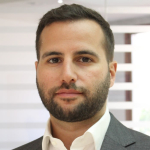
Omar Rahman, Brookings Institute
Omar H. Rahman is a visiting fellow at the Brookings Doha Center, where he is writing a book on Palestinian fragmentation in the post-Oslo era. Rahman is a writer, analyst, and multimedia journalist specializing in Middle East politics and American foreign policy. His work has appeared in The Washington Post, Foreign Policy, Rolling Stone, The Guardian, Lawfare, PBS NewsHour, VICE, Quartz, The National, Al Jazeera English, and World Politics Review, among others.
Pursuing Change: Hear from Organizations Building a Better Future Together
Beyond the headlines, thousands of Israelis and Palestinians work together to build bridges between people and to work side-by-side to effect change. This session highlights select organizations with the most powerful stories to tell about the change they are bringing about. Each organization will be given the stage to share their work – their successes and their plans moving forward. Following the presentation, everyone is invited to our Hall of Progress, featuring organizations creating change where each will have a booth with additional information, materials, and ways to connect.
- Introduction: Gregg Skall, Symposium Chair
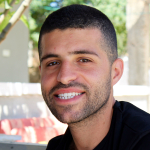
Noor Awad
Palestinian English Language Spokesperson
Roots
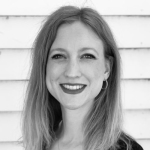
Kari Reid
U.S. Director
Alliance for Middle East Peace (ALLMEP)
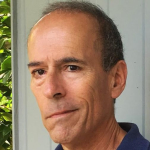
Lee Gordon
Executive Director
American Friends of Hand in Hand
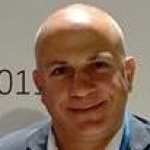
Tareq Abu Hamed
Executive Director
Arava Institute for Environmental Studies
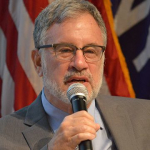
Walter Ruby
Project Rozana
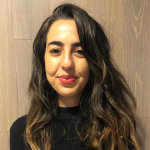
Rawan Odeh
Executive Director
New Story Leadership
Closing Keynote
Described as “radical and refreshing”, Rabbi Hartman, an Israeli Modern Orthodox rabbi and educator, will bring our plenary sessions to a close. Within the framework of his vivid and compelling views about the future of Israel and Palestine, we will explore with Rabbi Hartman, his perceptions and perspectives about the rich intelligence and abundant knowledge to which we have all had access during the three weeks of this Symposium. He will share his thoughts about some ways we can put our new learning to use.
- Introduction: Gregg Skall, Symposium Chair
- Rabbi Doctor Donniel Hartman, President, Shalom Hartman Institute
- Closing: Rabbi Amy Schwartzman, Senior Rabbi, Temple Rodef Shalom
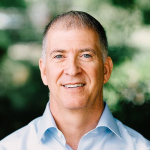
Rabbi Donniel Hartman, Shalom Hartman Institute
Rabbi Dr. Donniel Hartman is President of the Shalom Hartman Institute and holds the Kaufman Family Chair in Jewish Philosophy. He is author of Putting God Second: How to Save Religion from Itself, and currently is completing a book entitled, Who Are The Jews? Also, he hosts “For Heaven’s Sake,” one of the most popular Jewish podcasts in North America. He provides extensive programming for scholars, educators, rabbis, and religious and lay leaders in Israel and North America, including the compelling iEngage courses at TRS. He is a prominent essayist, blogger and lecturer on issues of Israeli politics, policy, Judaism, and the Jewish community.
Interested in learning more? Click the link below to look at a relevant course from Rabbi Hartman:
Hall of Progress
Arava Institute

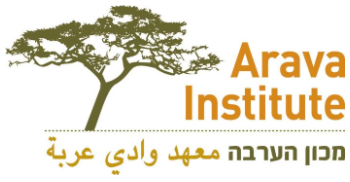
The Arava Institute for Environmental Studies is a leading environmental studies and research institute in the Middle East. It houses accredited academic programs, research centers, and international cooperation initiatives focusing on a range of environmental concerns and challenges.
With a student body comprised of Jordanians, Palestinians, Israelis, and participants from around the world, the Arava Institute offers students an exceptional opportunity to learn from leading professionals while forming friendships and developing skills that enable them to lead the region and the world in solving today’s most pressing environmental challenges.
Here, the idea that nature knows no political borders is more than a belief. It is a fact, a curriculum, and a way of life.
Documents & Links
Organization Representatives
 Rachel Durning |  Rachel Kalikow |  Rabbi Michael Cohen |
Project Rozana


Project Rozana was established in 2013 and has since grown to become an international organization with branches in Australia, United States and Canada. The initiative is committed to building bridges between Israelis and Palestinians through the field of healthcare, an area of civil society where both meet on a broad scale. The organization aims to improve access to medical treatment for Palestinians in Israeli hospitals, while significantly expanding healthcare capacity on the West Bank and in Gaza.
Documents & Links
Organization Representative: Miki Golod
Roots

At a time when both sides are convinced “there is no partner for peace,” we have found otherwise.
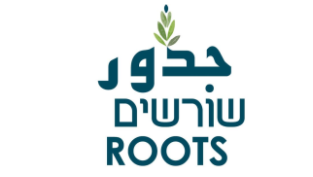
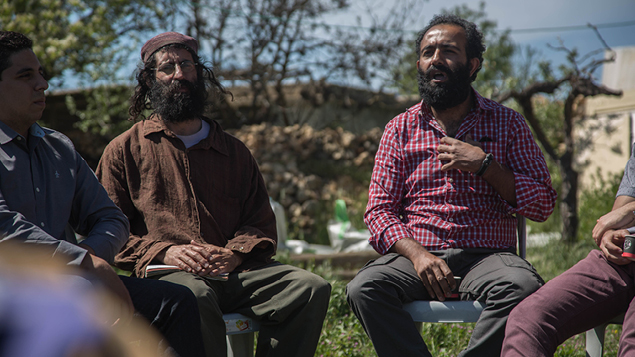
Who We Are
A unique network of local Palestinians and Israelis who have come to see each other as the partners we both need to make changes to end our conflict. Based on a mutual recognition of each People’s connection to the Land, we are developing understanding and solidarity despite our ideological differences. Roots is a place where local peoples can take responsibility. Our work is aimed at challenging the assumptions our communities hold about each other, building trust and creating a new discourse around the conflict in our respective societies. This is a grassroots and local model for making change — from the bottom up.
Why We Meet
Despite living so close to each other, Israelis and Palestinians in the West Bank exist in almost complete separation, and both sides have little knowledge of each other’s lives or humanity. Stereotypes are generally reinforced by exposure to only the aggression of the other; whether through media or personal experience of violence and trauma.
Through our projects and workshops, we create trust and partnership — the societal foundations upon which future political agreements can be built.
What Motivates Us
We are sustained by the unity and truth of our partnership. We are not a group of Palestinians or Israelis preaching to partners “over there”, but rather a united coalition of people across the divide willing to help and depend upon each other.
The stories that we have heard and the encounters that we have seen become messages of hope and resilience to our larger societies and counter the general despair and resignation of the conflict. We are inspired by the incredible impact and influence that this work can have on our communities at large.
What We Believe
Initiatives: Roots is extremely active and carries out groundbreaking grassroots projects within and between our two communities. Our projects include a wide range of formal and informal activities and action, from interreligious discussion groups to a summer camp for children to community-wide meals.
Speaking: A large part of our work is bringing our experience and personal stories to new groups. We speak with various groups at the Roots Field and internationally with the aim to open and change the conversation around the conflict. To access media from past events or to find out about upcoming speaking tours in the US or Europe please look to our ‘Speaking Tours’ pages.
Dialogue: Roots runs dialogue groups at least once a week between members of local communities. We know that there is great disagreement over many issues – over the facts of the past and the reality of the present; but we have found that effective dialogue is the secure place for argument, and leads to deeper understanding. It is in this space that solutions can be built and actions can be developed.
Documents & Links
Organization Representatives
 Reuven Hanan Stone |  Noor Awad |  Shaul Judelman |
 Rabbi Hanan Schlesinger | Steven Longden |
Alliance for Middle East Peace (ALLMEP)

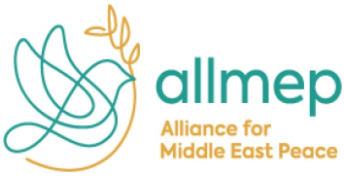
Founded in 2006 and headquartered in Washington, D.C., with offices in Europe, Israel, and Palestine, the Alliance for Middle East Peace (ALLMEP) is the largest and fastest growing network of Palestinian and Israeli peacebuilders. We envision a Middle East in which our community of Palestinian and Israeli peacebuilders lead their societies toward and beyond a sustainable peace.
With a coalition of over 150 organizations—and tens of thousands of Israelis and Palestinians—we foster cooperation that increases impact, add stability in times of crisis, and build an environment conducive to peace over the long term.
On the ground, our expert team, drawn from both the shared society and cross-border communities, works to incentivize cooperation and develop partnerships, as well as provide member services and programming, so that our community operates with greater strategic impact. Internationally, our teams in the United States and Europe work to amplify the visibility of members in the media and in the corridors of power, and to ensure that the field is adequately resourced, so that it can reach its inherent potential. This is not merely an ambition. To date, our advocacy has helped to introduce more than $380 million in government support into the field, including the creation of USAID’s Conflict Management and Mitigation Fund and the Nita M. Lowey Middle East Partnership for Peace Act, as well as funding from international governments.
Documents & Links
Organization Representative: Kari Reid

Hand in Hand
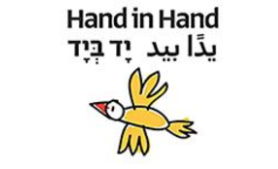
Hand in Hand is transforming Arab-Jewish relations in Israel through the power of shared living. When people live and learn together every day in Hand in Hand schools and communities – it creates a daily practice of a shared society. We see this in our students, alumni, families, communities, government officials, and media. Each one of these groups on its own makes a difference – and the sum total starts to show Israeli society that it is possible to live together as equals.
We are growing. The more we continue to meet the high demand and expand to more locations, taking in more students and building more communities, the more we will leverage a shift from conflict to cooperation for all of Israeli society.
Documents & Links
Organization Representative: Lee Gordon

EcoPeace Middle East

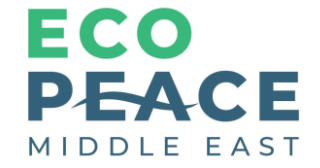
Founded in 1994, EcoPeace Middle East brings together Jordanians, Palestinians, and Israelis to create shared solutions for the most water-scarce region on the planet. An award-winning trailblazer in the field of environmental peacebuilding, EcoPeace seeks to advance sustainable regional development and create the necessary conditions for lasting peace in our region.
EcoPeace’s approach combines top-down policy change with bottom-up community-based constituency building; educating youth and local constituencies to call for and lead cross-border solutions to regional water issues that facilitate the advancement of community interests, and showing decision makers that it is not possible to disengage from a shared environment while highlighting the national self-interests and mutual gain of cooperation.
Conflict in the Middle East is a problematic situation made even more desperate by the climate crisis, inflaming extremism and instability in the most water-scarce region on the planet.
To create a framework for peace, in late 2020 EcoPeace introduced A Green Blue Deal for the Middle East, a bold initiative to advance climate security by creating shared solutions in key areas, including energy, water, investment, and education.
By working together, a coalition of the willing is changing mindsets, fostering healthy interdependencies, and developing mutual economic support based on a healthier, stronger environment.
For more information, please visit: www.ecopeaceme.org
Organization Representative: Amy G.
New Story Leadership
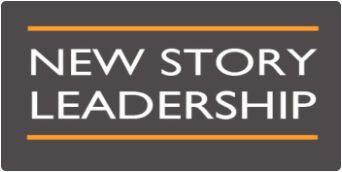
NSL is a leading peace-building organization that focuses on developing a community of leaders and influencers across Palestine and Israel. Stories make NSL different from any other program. NSL focuses on the power of stories as the way for change. NSL believes that in order to change people’s minds, you have to change their hearts. Stories have a unique power to do that. NSL teaches its participants how to share their stories in productive and effective ways. Sharing these powerful personal narratives with members of congress, NGOs, and members of the public starts a ripple effect of challenging and changing the old story in order to create a better future.
Washington D.C. Leadership Program
NSL identifies ten emerging leaders in Palestinian and Israeli society. Delegates come from diverse political, religious, and professional backgrounds. NSL provides the tools for them to create a new story of economic, political, and social change.
Every summer for seven weeks, delegates live in Palestinian-Israeli pairs with American host families, sharing the stories of their realities back home. NSL delegates participate in work-placements on Capitol Hill. Congressional offices that have served as work placements for our delegates include, Sen Chris Van Hollen, Rep. Alexandria Ocasio Cortez, Rep. Rashida Tlaib, Chairman Ted Duetch, Rep. Ilhan Omar and more.
NSL Delegates take the responsibility to brief members of Congress and other decision-makers about critical issues and to provide advice on ways to make more effective policies. These meetings include the United States Institute of Peace, J Street, AIPAC, UNDP, the Swedish Embassy, and various US Congressmen and Senators — including Sen. Bernie Sanders, Sen. Tim Kaine, and Rep. Joe Kennedy. Delegates share their real-world, on the ground experiences with policymakers and influencers in Washington
NSL delegates take the stage at speaking engagements on Capitol Hill and across Washington DC. Through the witness of their personal stories, delegates challenge their audiences to reassess their understanding of the Palestinian Israeli Conflict. Previous audiences have included:
- US Senators & Representatives and their staff
- Numerous faith-based communities
- High School and University Students
- Public Forums, such as The Dove, co-sponsored by Americans for Peace Now
#SHELEADS
#SheLeads is a digital gender lens leadership program sponsored by the United States Embassy in Jerusalem that trains, mobilizes, and unites 20 women from Israel and Palestine who are committed to becoming leaders in their respective fields and are interested in building an allyship with each other to expand their perspectives and knowledge.#Sheleaders go through dialogue sessions framed around personal stories. Participants also go through the #SheLeads online program to develop skills in storytelling, negotiation, gender lens investments, and diplomacy. #SheLeaders also learn from and connect with prominent women leaders and develop their own stories and policy solutions.
#OURVOICE
#OurVoice is a digital advocacy project sponsored by the Irish government that brings together 15 Palestinian, Israeli, and Irish Alumni of New Story Leadership and the Washington Ireland Program for training on storytelling in digital advocacy. After the training, participants collaborate together to produce three digital advocacy videos concerning Ireland’s 2030 developmental goals: Gender Equality Environmental SustainabilityPeace and Security
Documents & Links
Organization Representatives
 Rawan Odeh |  Joyce Schwartz | Nancy Adams |
Madrasa
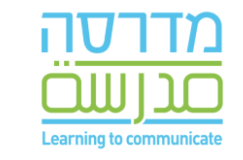
What is Madrasa?
Madrasa is a social, educational and technological organization that teaches hundreds of thousands of Israelis to communicate in Arabic. Currently, over 95,000 Israelis are enrolled in at least one of Madrasa’s completely free colloquial Arabic courses. Additionally, Madrasa have over 200,000 monthly unique engagements with our various social media content. Madrasa also has partnerships with 50 different businesses, civil-society organizations, schools, universities and government ministries who benefit from our educational and strategic projects. We are a non-profit that works to sustain itself through community members’ participation, profits from organizational collaborations, strategic projects and long-term partnerships with philanthropic foundations.
Why Madrasa?
Because 95% of the Jewish population in Israel doesn’t speak Arabic, even though it is the native language of 22% of the population; because many Israeli-Jews have familial, cultural and historical ties to
the Arabic language yet do not speak the language their mother or father were raised speaking; Finally, because we understand the great impact of speaking “the other’s” language on people’s preconceptions
and firm beliefs.
Our Vision
We aim to make Arabic a common denominator, and help turn Israeli society into one where all members can communicate with each other.
How are e going to fulfill it?
We are working by a detailed theory of change that has been proven effective both socially and financially. for more information please seethe attached document!
Join us!
Documents & Links
Organization Representatives
Michal Rozen |  Gilad Sevitt | Daniel Dotan |
Louise Drori |
Beit Ha’Gefen


Beit Ha’Gefen is an established and well-known institution in Haifa, Israel and the world, thanks to over five decades of efforts to promote the shared society in Haifa in particular, and Israel in general. Over the years, Beit Ha’Gefen has worked in a variety of fields and creatively to bring together the various religions, cultures and nationalities living in Israel. We believe that diversity and life in a multi-cultural society is an advantage that empowers society – even if shared life poses difficult challenges.
We believe that fear of the other, which usually results from lack of knowledge and lack of opportunities for a qualitative encounter, is a fertile ground for the growth of stereotypes and mutual alienation.
We will continue to work tirelessly to strengthen the foundations of the common society in Israel, because there is no other way but to build a common society that is fair and safe for all of us.
Documents & Links
Organization Representatives
Limor Shine | Yael Messer |  Asaf Ron |
Maria Miguel de Pina | Samb firstb |
